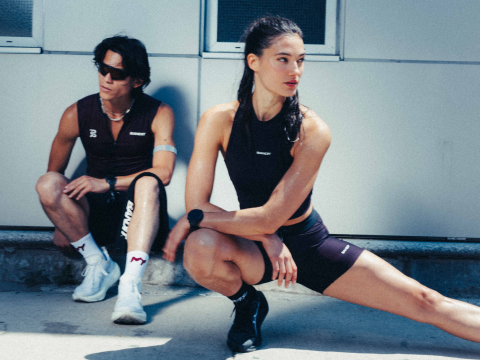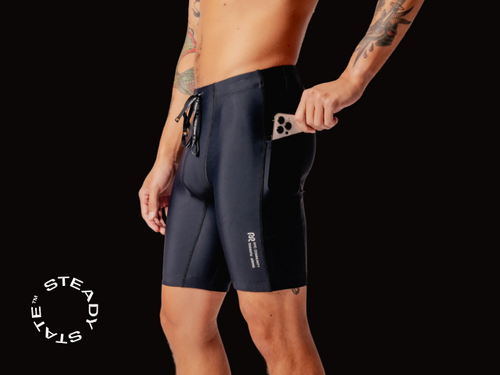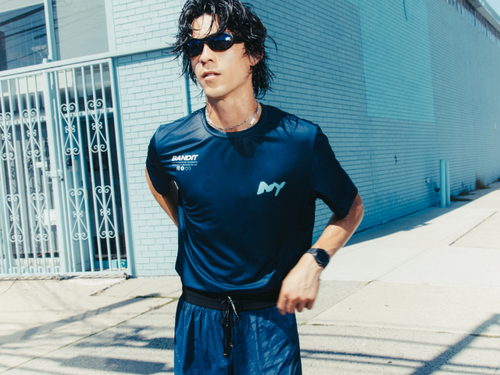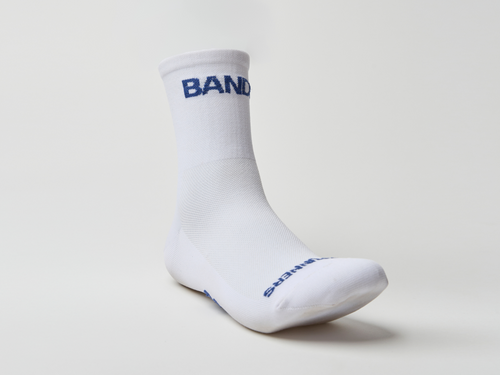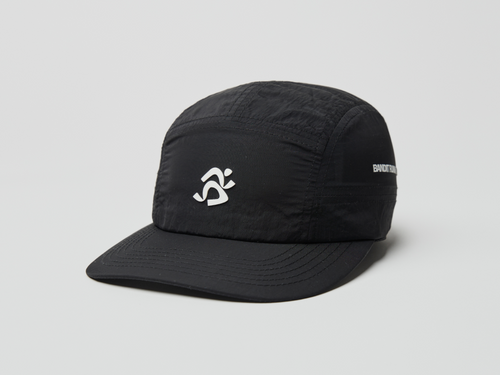When Ryo Yamamoto talks about his fifth marathon, Chicago, his eyes can easily well. The 46-year-old New Yorker recently ran a 23-minute personal best, which he humbly credits as lucky. But ask Yamamoto about his preparation, and it’s obvious that the achievement was a culmination of his dogged approach to running. Or in his words, he finally got serious about training.
A consistent four-hour marathoner since he first attempted the distance in 2018, Yamamoto set out to prove to himself that, regardless of getting older, he could become faster. He hired New York coach and ultra runner Francisco Balagtas and trained on his own, as early as 5 a.m. to dodge New York’s hellish summer heat before starting his day job as the director of creative services for a creative content studio. Yamamoto maintained a strict routine religiously for 18 weeks while his wife and daughter enjoyed a summer-long trip to Japan.
“Every night I’d look at my workout for the next day and figure out what I’d eat. It was the first time I really felt like a runner, the first time I felt like an athlete,” says Yamamoto, who started running in 2016.

He wanted to be alone to develop what he says was necessary mental toughness for the marathon that previously he lacked. One solo mile at a time, Yamamoto was learning how to toughen up and in the process, he outgrew a previous version of himself. The man who would stop and walk when running became too challenging figured out how to push his boundaries. Training on his own gave Yamamoto a better understanding of what it meant to be there for himself. He had no one to blame if he didn’t hit a target pace or complete his workouts. “It was just me,” he says. Ryo versus Ryo.
As the co-founder of Old Man Run Club (OMRC), which he started in New York in December 2018 with two friends — streetwear designer Dao-Yi Chow and fashion consultant Eugene Tong — Yamamoto was used to group training. He first experienced it with Project Moonshot, a program supported by Nike for runners preparing for the New York City Marathon.

Yamamoto appreciated the camaraderie of running alongside other people and the natural support system. So he continued it with Chow and Tong, then others tagged along. Since the first OMRC run in December 2018, when 30 people showed up, the club has attracted upwards of 50 runners that consistently attend the weekend runs. Despite the name, age and gender are irrelevant. Anyone is welcome. Yamamoto says there are more women than men, in fact, and two women help lead the club as captains.
If you see a shirt with a winged tiger, let it be known that Yamamoto designed OMRC’s logo, which he says was inspired by the Tiger Balm icon. In the early days of OMRC, Yamamoto, Tong and Chow, often joked about how achy and aged they felt after a run. Hence the name, “Old Man” Run Club. But, as Yamamoto points out, “We say being old is a state of mind.”
He didn’t need reminding when he showed up in Chicago with a plan: stick with the 3-hour and 20-minute pace group. Yamamoto was prepared to endure the speed, and he wanted to be consistent with his splits. In the past, Yamamoto would start too fast, and his pace would fluctuate before and after “hitting the wall.”
This time, his plan unfolded accordingly until mile eight. He dropped the 3:20 pace group, which he had intended to run with for 20 miles. The sound of reggae pumped through his headphones as his brawny legs stomped across the road strides ahead of the pace group. Since the race started, Yamamoto hadn’t glanced at his watch. In fact, he had no idea how fast he was running. The moment a cramp crept into his right calf, which it did three times, he shouted, “Not today! Not today!”, gritted his teeth and kept going.

Yamamoto knew this race was his to own. “I’m incredibly competitive with myself,” says Yamamoto, who grew up swimming and also played soccer. When Yamamoto ran his first marathon in 2018, he did it as a bet after watching Chow run the New York City Marathon. Yamamoto stood at mile 19 alongside Tong, both there to support Chow, cheering and awestruck by witnessing 50,000 people run through the streets in one of the greatest cities in the world. Tong and Yamamoto agreed that if Chow could finish a marathon, they were capable too.
That was the start of Yamamoto’s running career. He would learn that marathoning is a different beast — and a beautiful pain.

Chicago would prove it and also that Yamamoto had more to explore with running. He described the experience as his most perfect race to date. Yamamoto crossed the finish line in 3 hours and 16 minutes, well within the Boston Marathon qualifying standard (3:20) for the 45-49 men’s age bracket. His first BQ. What he thought was a “lifetime goal” was suddenly very real. Yamamoto says he’s still processing it. He intends to apply to run the Boston Marathon in 2024.
“I thought I was too weak mentally,” Yamamoto says. “I finally learned what it was like to grind.”

